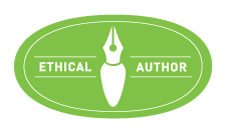The Long Game is Built on Relationships
/
Hey y’all,
Much has changed in the world of publishing and self-publishing. This past weekend, I attended the Willamette Writers’ Conference in Portland, Oregon. This was my first Conference in several years.
About 10-12 years ago, I went to quite a few.
At that time, I was hungry for an agent or an editor or both because, like most of us who had been writing for many years, it was my dream to get published.
By my 3rd Conference, I was a pro at finding where the agents and editors would be, at angling for an opportune conversation where I could pitch my story that was not yet a novel.
I had an agenda.
So did every other writer who was at the same conference.
We were sharks circling a handful of meaty minnows. It was exhausting for us, and it was highly unpleasant for the agents and editors who attended these conferences. There wasn’t an agent or editor at any conference I went to who didn’t have some over-the-top stories of being stalked by 100’s of writers – some more overzealous than others.
One of the classes I went to this weekend taught me that my mindset back then had been a mistake.
Since I am committed to the self-published path, I hadn’t signed up for any pitches. I couldn’t care less about who the agents and editors were – unless they were freelance and good, because I need one. I went to this WW Conference because they had a lot of classes on self-publishing and marketing tips.
I was there for what I needed to learn.
Russell Nohelty taught most of the classes on self-publishing, building an audience, and making a profit. His core theme surprised me though. In his class on building an audience from scratch and on pitching, what he had to say came down to one thing. Connection.
“Publishing is a long game. And it is a game that is built on relationships.”
In his talk on building an audience, Russell said he spends about 10 hours a week communicating with some of his fan base. He asks questions about themselves, their lives, their favorite books, movies, shows, hobbies, and interests.
“Instead of treating them like a $20 bill, I find out who they are as 3-dimensional humans. Be a human treating somebody else like a human. Then go out and find other humans who have similar interests to the human who likes your stuff. Chances are you will find more.”
When I went to his pitch class, he said pretty much the same thing.
“Go into the pitch session and take a minute to find out what the agents like, and what they are looking for. Treat them like a human, not an opportunity. Even if they don’t want what you are looking for, you might have something like that later. And in the meantime, you’ve made a friend because you’ve treated them like a human. And if they can’t help you, they might direct you to somebody who could.”
And in that class is when Russell said.
“This is a long game. And it’s built on relationships. Chances are none of you will sell your book or your script from this conference. But you can make connections. From those connections, you could make some friends. That is what will serve you in the long game.”
As I listened, I cringed a little when I thought back to those early conferences, my sharp eyes, and restlessness that probably made the agent or editor very uneasy. I was not being a human trying to connect with another human. I was a predator looking for something to feast on. When I think back on those conferences, I’m pretty embarrassed.
My agenda mindset may have accounted for some less than fabulous perceptions I had ultimately of the publishing industry. Yet in defense of hungry writers stalking agents and editors for a chance, the Monolith of Traditional Publishing set it up that way when it became a business rather than a forum for the art of the written word.
Ours is an aggressive culture that is very focused on the outward trappings of success measured in tangible units like money, and less tangible ideals of elitism and exclusion. Something happens to creativity when the focus is on money, not the finished piece of art, whether this is writing or painting or music or theater or film or dance. When the focus is on getting in, getting up, and getting more, how can the creative juices flow? How can new ideas and fresh perspectives flourish when the pressure is on to make money, Money, MONEY?
To backtrack to the Conferences I had gone to more than a decade ago…
My journey through the Conferences started during my DIY booktour/roadtrip, an odyssey of self-publishing.
With the Beast filled with 100’s of my self-published copies of “Ella Bandita and other stories,” I went to the San Diego Writers’ Conference in the spring of 2006. Yet the advice given to me was: Do NOT bring attention to the fact that I had self-published.
There was a strong stigma to being a self-published author, and I was told that would be the kiss of death for anybody who was somebody in New York publishing.
Marla Miller, an editor and writer who had her non-fiction published, but still couldn’t get her fiction published, was very blunt in talking about how publishing was a tough business and we all had to play the game.
A lot of classes talked about all the rules and regulations, the have-to-do-this and the don’t-you-dare-do-that RULES TO LIVE BY, for any of us to have even a snowball’s chance in Hell of ever getting published.
Oh, and the market for fiction was shrinking faster than a receding glacier.
The pressure was on. Those who were in the Industry were all-powerful. Those who had been published in that Industry had oversized egos.
They were the cool kids and the writers (unpublished) were the outsiders. Of course, many of the cool kids were very nice people.
Most of them were quite reserved – obviously necessary for the sake of self-preservation with all the hungry writers stalking them. But it wasn’t long before I began to feel like the pathetic geek trying to get the cool kids to accept me.
That really sucked.
And frankly, I think the dynamic of in-group vs. outcast is grossly inappropriate.
Writers are, as a general rule, odd and eccentric people.
Most of us were not in popular crowds in high school, college, or even adulthood. We were the introverts, the watchers, the geeks, and the freaks.
Chuck Palahniuk (Fight Club) said in a fantastic speech: “I believe writers became writers because we were the ones who were never invited to the party.”
This was at the last Willamette Writers Conference I went to several years ago. Of course, this pithy line was part of a hilarious story he shared about an exclusive yacht party he’d been invited to because he was now “THE Chuck Palahniuk, Famous Author.”
But he was so right it hurt. A publishing industry constructed on popularity dynamics becomes an environment where the creative minds of voyeuristic screwballs cannot and will not thrive.
I remember many of the agents and editors wanted something that was “a lot like Jodi Picoult.” A lot were looking for Urban Fantasy, which was really hot at that time. One agent suggested I rewrite my pre-Industrial Revolution fairy tale of Ella Bandita into an Urban Fantasy, and maybe she’d be interested.
What did I write that was a lot like what somebody else had written? We were encouraged to define ourselves as effective copycats of somebody else who had already succeeded.
They were looking for the next hot book to be the next runaway bestseller. It was all about money.
The world was addicted to self-help. A non-fiction book on how to lose 100 pounds in 6 months or less, or how to get rich in 3 years, would have a shot. But the fiction market was shriveling up.
I’m not saying there’s anything wrong with ambition, wanting to do a good job, wanting to be successful, or even wanting to make a profit. But there has to be a limit and there has to be balance.
And if the publishing houses want profitable stories, they need to nourish and support the weirdoes who will be the ones to bring them something different – that might actually become that next runaway bestseller. But you have to support them, not choke them. Creative minds don’t flourish under pressure like that.
Also, the upstart Amazon was stirring things up at this time.
With the burgeoning ebook market, Amazon was coming out with guns blazing and suddenly, there was an endless vista of possibility for self-published authors.
Many agents and editors expressed nervousness about what was happening, because of course, Amazon was totally undercutting the Monolith of New York Publishing and their overpriced books.
One agent compared Amazon and the state of publishing as the Wild West where anything goes because it was lawless.
In other words, New York Publishing was no longer all-powerful and invincible. What was going on at that time would change the world forever, when it came to publishing and even better, doing away with the stigma of self-publishing.
Now, it’s a badge of courage to claim yourself as an Indie Author. It also sounds more rock star.
Of course, publishing and those who played in that arena have adapted to the changing market and what needs to be done. The Big 6 publishers are still going strong.
But there are now hybrid authors who do both traditional and self-publishing. Even those with Big Publishing Houses behind them still have to do all the promotion that Indie Author has to.
Back to this past weekend…
Since I didn’t go to any of the panels with agents and editors lined up like ducks in a row, I have no idea the current attitude of the players from the Big Publishing World. So there’s no way to compare then and now.
It was refreshing to go to a Conference, and not give a hoot who the agents and editors were - unless they were freelance editors, but stalking was not necessary. I can simply hire one.
I’m sure there were writers stalking agents, but none of those sharks was me.
Instead I focused on the classes geared towards Indie Authors, what I could learn, and the only thing I kept an eye out for were other writers who needed a writers’ group.
I found them too. In the classes geared towards Indie Authors. Our first meeting is at the end of the month.
So, in this long game built on relationships, perhaps now, I’m on the right path.
Thanks for reading!
Peace,
Montgomery






